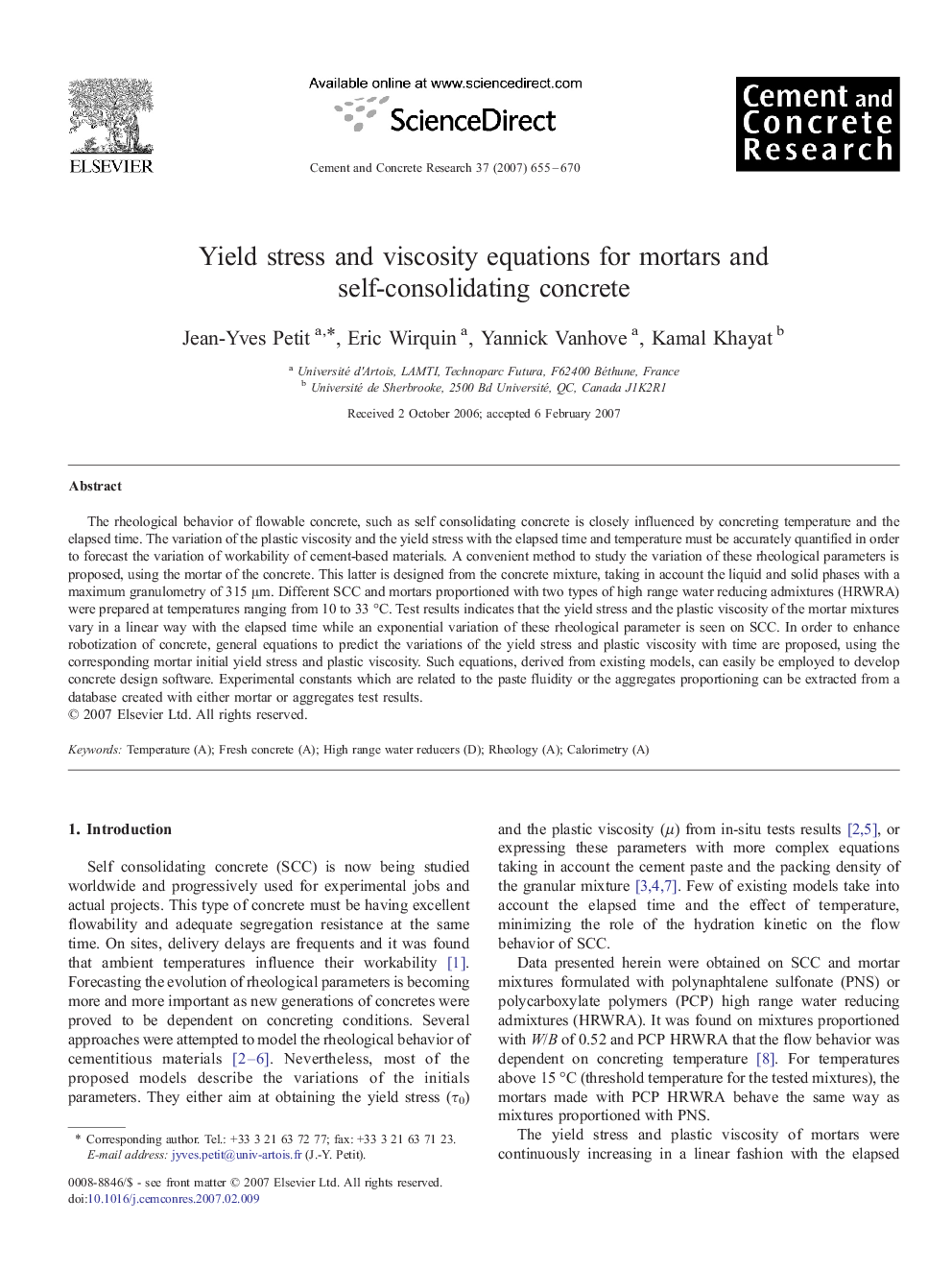| Article ID | Journal | Published Year | Pages | File Type |
|---|---|---|---|---|
| 1457634 | Cement and Concrete Research | 2007 | 16 Pages |
The rheological behavior of flowable concrete, such as self consolidating concrete is closely influenced by concreting temperature and the elapsed time. The variation of the plastic viscosity and the yield stress with the elapsed time and temperature must be accurately quantified in order to forecast the variation of workability of cement-based materials. A convenient method to study the variation of these rheological parameters is proposed, using the mortar of the concrete. This latter is designed from the concrete mixture, taking in account the liquid and solid phases with a maximum granulometry of 315 μm. Different SCC and mortars proportioned with two types of high range water reducing admixtures (HRWRA) were prepared at temperatures ranging from 10 to 33 °C. Test results indicates that the yield stress and the plastic viscosity of the mortar mixtures vary in a linear way with the elapsed time while an exponential variation of these rheological parameter is seen on SCC. In order to enhance robotization of concrete, general equations to predict the variations of the yield stress and plastic viscosity with time are proposed, using the corresponding mortar initial yield stress and plastic viscosity. Such equations, derived from existing models, can easily be employed to develop concrete design software. Experimental constants which are related to the paste fluidity or the aggregates proportioning can be extracted from a database created with either mortar or aggregates test results.
